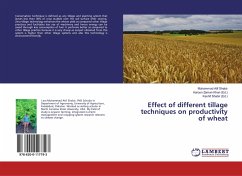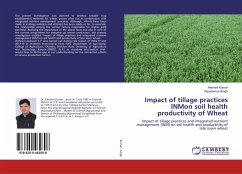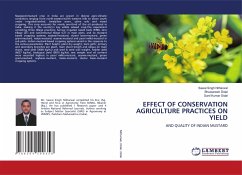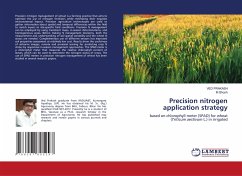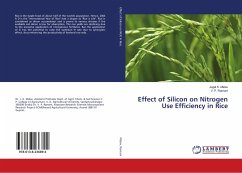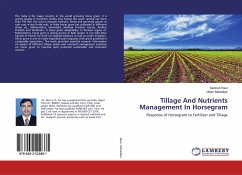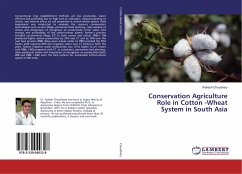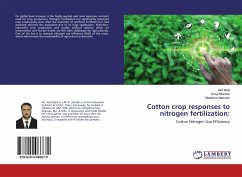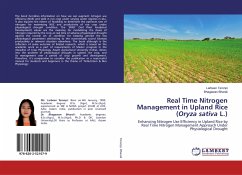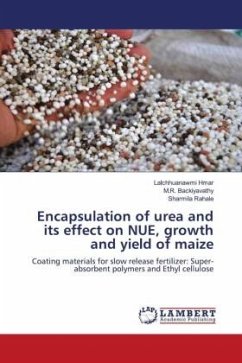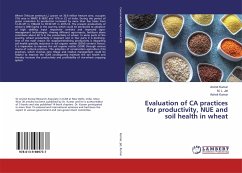
Evaluation of CA practices for productivity, NUE and soil health in wheat
Versandkostenfrei!
Versandfertig in 6-10 Tagen
47,99 €
inkl. MwSt.

PAYBACK Punkte
24 °P sammeln!
Wheat (Triticum aestivum L.) grown on 30.6 million hectare area, occupies 72% area in NWPZ & NEPZ and 17% in CZ of India. During the period of green revolution its production increased by more than five times from 12.26 MT in 1964-65 to 93.50 MT in 2015-16. The present productivity of wheat is 3093 kg/ha in the country, which could be attributed to adoption of high yielding input responsive varieties and improved agro- management technologies. Among different agro-inputs, fertilizers alone contribute about 40 % in the productivity of wheat. In some parts of the country, wheat productivity is s...
Wheat (Triticum aestivum L.) grown on 30.6 million hectare area, occupies 72% area in NWPZ & NEPZ and 17% in CZ of India. During the period of green revolution its production increased by more than five times from 12.26 MT in 1964-65 to 93.50 MT in 2015-16. The present productivity of wheat is 3093 kg/ha in the country, which could be attributed to adoption of high yielding input responsive varieties and improved agro- management technologies. Among different agro-inputs, fertilizers alone contribute about 40 % in the productivity of wheat. In some parts of the country, wheat productivity is stagnant and in few parts it is declining. One of the main reason for stagnant/declining productivity is degrading soil health specially reduction in soil organic matter (SOM) content. Hence, it is imperative to improve the soil organic matter (SOM) through various means of cultural practices. The adoption of conservation agriculture (CA) practices, which involves zero tillage and residue management could be helpful to improve the SOM consequently maintain the soil health and thereby increase the productivity and profitability of rice-wheat cropping system.



